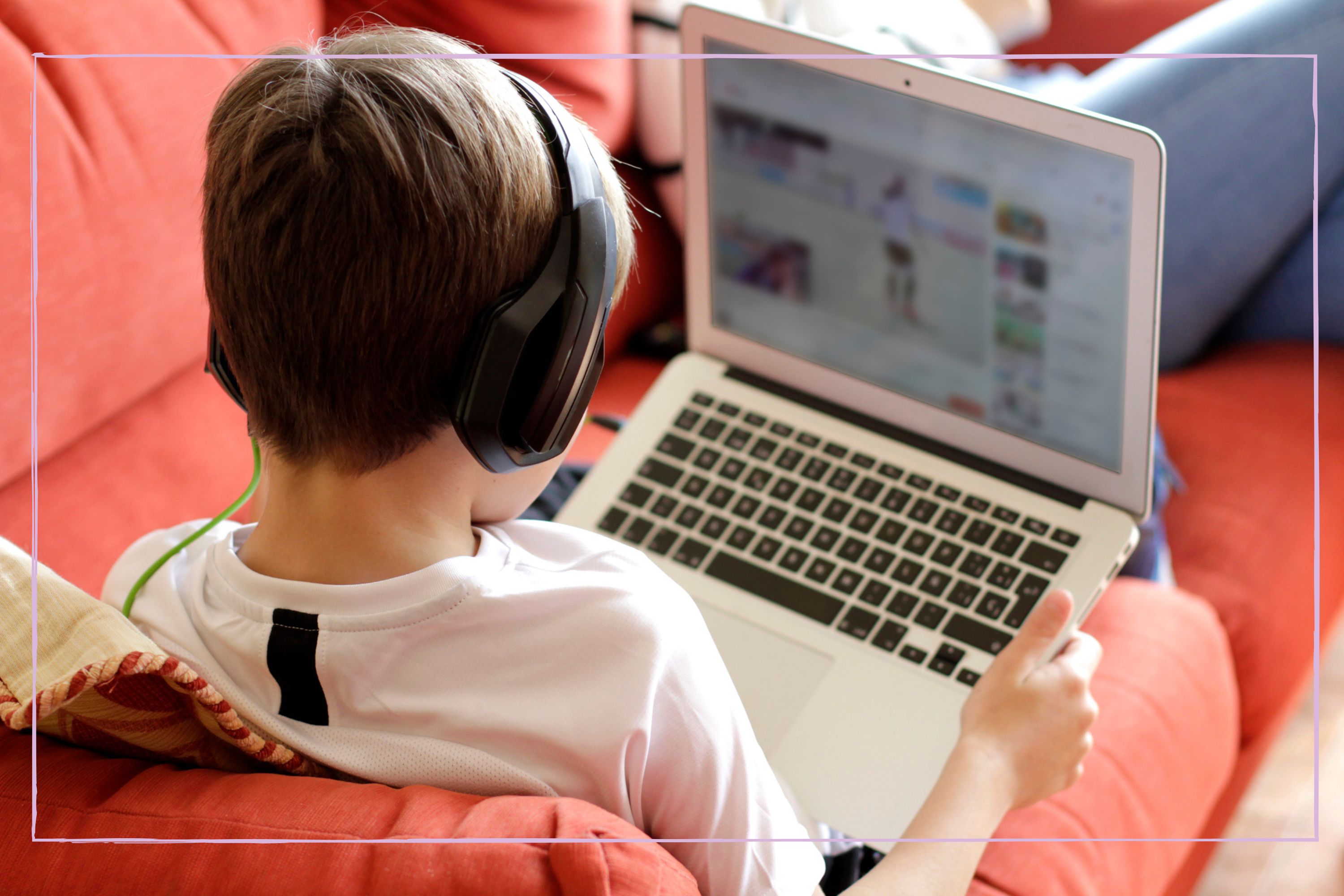"My biggest rule..." Psychologist Dr Becky reveals to Oprah top screen time rules she uses for her own kids and admits getting the balance right is a 'struggle' - and we totally relate to #3
More great advice from the famed psychologist


While there are undoubtably some benefits of screen time, for many parents finding ways to keep it to a safe level can be a constant battle – but here are the rules parenting expert Dr Becky has implemented with her own kids.
Dr Becky is a huge hit with parents globally, offering straightforward, actionable advice for being the best parent you can be - all delivered with a good dose of her relatable personality. She has once again proved just how down-to-earth she is, during a chat with Oprah Winfrey, when she admitted to difficulty in getting the balance with screen time right. She said "I think it's a struggle for everyone. For me, too. My kids don't have 'Dr. Becky' as a parent. They have 'Becky,' who's just trying to, you know, figure this out."
While acknowledging her own difficulties in managing and reducing screen time, Dr Becky revealed the top tips she uses for her own children - parents will find number three very relatable.
Dr Becky's top 3 screen time rules
- Parental controls. The psychologist said "I try to infuse parental controls in any screen device they have." She elaborated: "Some kids are able to set up their devices as an 'adult,' gaining access to virtually anything online. If they do, 'then we've lost our ability to have any sense of what's happening there."
- Clear expectations and boundaries. Dr Becky urges parents to do this before kids have even reached for those devices. She advises that kids are told clearly how much time they'll be allowed, and what they are and are not permitted to do online. For her own children, Dr Becky has different rules depending on age - the younger ones aren't allowed screen time after 6 p.m. because she finds "it affects their sleep." She also sticks to the firm rule that none of her kids have devices in their bedrooms for any reason.
- Be prepared for their reactions. Parents everywhere will have experience of this - that dread of tears and tantrums when a device is taken away. Even when kids have been told explicitly how much time they'll have, this can still happen when it's removed, and that's completely normal. Dr Becky suggests parents are prepared for this, and how they react is key. She said "I know my kids are going to protest at the end, and I prepare myself to tolerate it." She concluded laughingly that when screen time comes to an end, her kids would never say "Thank you. I understand. You're the best."
Dr Becky advises that when implementing boundaries, parents prepare themselves for the discomfort that comes with having to stick to them. Although challenging, with practice, children will learn to expect the boundary and will learn to comply.
When Dr Becky and Jonathan Haidt chatted to Oprah, he also opened up about screen time boundaries he hopes will become the norm for future generations. Haidt, author of The Anxious Generation: How the Great Rewiring of Childhood is Causing an Epidemic of Mental Illness believes no smartphones before secondary school and no social media before the age of 16, are crucial for kids to experience richer lives. He also advocates for phone-free schools, and increased independence, free play and responsibility, for kids to live properly in the real world.
Although Haidt's words on the matter have previously caused some debate, he and Dr Becky have a shared goal when it comes to technology - for it to enhance children's development in the world, rather than diminish it.
For more of Dr Becky's wise words, try her three lines every parent needs to know to help a child navigate their emotions. The psychologist also reveals four words that are better than empty threats, and the best response if you catch your kids in a lie.
Parenting advice, hot topics, best buys and family finance tips delivered straight to your inbox.

Lucy is a mum-of-two, multi-award nominated writer and blogger with six years’ of experience writing about parenting, family life, and TV. Lucy has contributed content to PopSugar and moms.com. In the last three years, she has transformed her passion for streaming countless hours of television into specialising in entertainment writing. There is now nothing she loves more than watching the best shows on television and sharing why you - and your kids - should watch them.